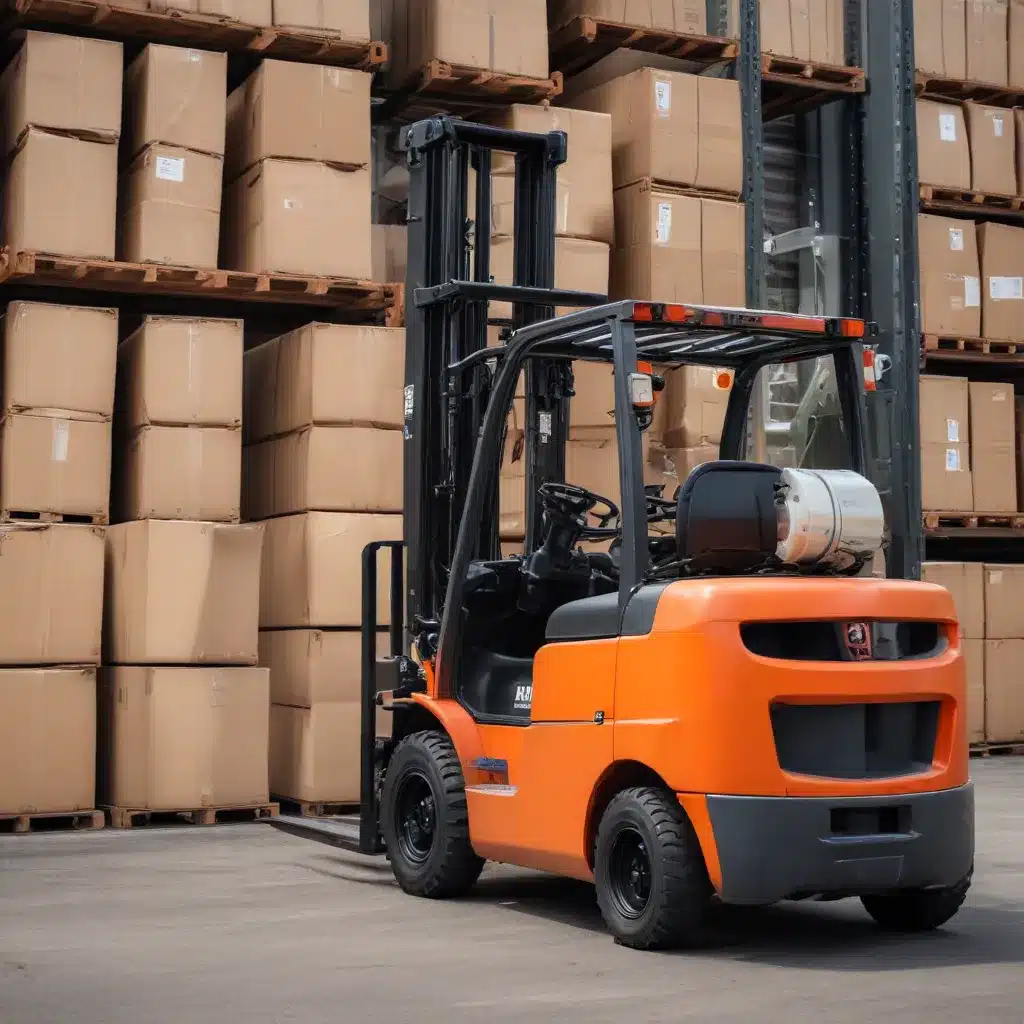
The Rise of Green Forklifts: Reducing Carbon Footprints
As sustainability becomes a growing priority for businesses across industries, the material handling sector is also undergoing a transformation. Forklifts, a crucial component of many warehousing and logistics operations, are now at the forefront of the eco-friendly revolution.
The adoption of electric forklifts has emerged as a game-changing solution for companies seeking to minimize their environmental impact. Unlike their traditional diesel or gasoline-powered counterparts, electric forklifts produce zero direct emissions, significantly reducing carbon footprints and improving indoor air quality. These clean energy-powered machines not only help businesses meet sustainability goals but also offer long-term cost savings through reduced fuel and maintenance expenses.
Furthermore, advancements in battery technology have extended the runtime and charging capabilities of electric forklifts, making them a viable and practical alternative to conventional models. Many electric forklifts now boast fast-charging systems and extended operating times, ensuring uninterrupted productivity without compromising efficiency.
Embracing Energy-Efficient Innovations
Sustainability in forklift fleet management extends beyond the choice of power source. Businesses are also exploring energy-efficient technologies that optimize forklift performance while minimizing energy consumption. Features such as regenerative braking systems, which convert the energy generated during braking into usable power, help conserve valuable resources.
Additionally, smart charging systems and automatic idle shutdown functionalities contribute to a more sustainable operation. These advanced technologies not only reduce energy usage but also extend the lifespan of forklift batteries, leading to cost savings and a smaller environmental footprint.
Eco-Friendly Materials and Design
Sustainability in forklift fleets is not just about the power source or operational efficiency; it also encompasses the materials and design of the equipment itself. Manufacturers are increasingly prioritizing the use of recyclable components and implementing holistic design strategies that enhance the longevity of forklifts.
By selecting eco-friendly materials and adopting design practices that extend the useful life of forklifts, businesses can minimize the need for premature replacements and reduce the environmental impact associated with manufacturing new equipment. This circular approach to forklift management aligns with the broader movement towards a more sustainable future.
Exploring Alternative Fuel Options
While electric forklifts have emerged as the frontrunners in sustainable material handling, businesses are also exploring alternative fuel options to power their forklift fleets. Forklifts that run on biofuels, compressed natural gas (CNG), or hydrogen fuel cells offer reduced emissions compared to traditional gasoline or diesel-powered models.
These alternative fuel sources provide flexibility and choice for companies aiming to transition towards greener practices. By diversifying their fuel options, businesses can find the right balance between environmental responsibility, operational requirements, and cost-effectiveness.
Telematics: Optimizing Efficiency and Sustainability
The integration of telematics technology is revolutionizing forklift fleet management, contributing to enhanced sustainability. By collecting real-time data on forklift performance, usage patterns, and maintenance needs, telematics systems enable fleet managers to make informed decisions and optimize overall efficiency.
Through the analysis of telematics data, businesses can identify areas of energy waste, implement predictive maintenance schedules, and allocate forklifts more effectively. This data-driven approach not only improves operational efficiency but also leads to reduced energy consumption and extended forklift lifespan, ultimately driving sustainability.
Empowering Operators for Eco-Friendly Operation
Sustainable forklift practices extend beyond the equipment itself; they also involve the training and empowerment of operators. Comprehensive training programs that emphasize eco-friendly driving techniques and proper maintenance procedures empower forklift operators to contribute to the overall sustainability of the fleet.
By educating operators on energy-efficient practices, such as smooth acceleration, proper tire inflation, and minimizing idling, businesses can ensure that their forklifts are operated in a manner that minimizes environmental impact. This collaborative approach to sustainability helps foster a culture of environmental responsibility throughout the organization.
Reaping the Rewards of Sustainable Forklift Fleets
Embracing eco-friendly forklift technologies and sustainable practices not only benefits the environment but also presents tangible economic advantages for businesses. The adoption of electric forklifts, energy-efficient innovations, and holistic design strategies can lead to significant cost savings through reduced fuel expenditures, lower maintenance costs, and extended equipment lifespan.
Moreover, the growing demand for environmentally conscious products and services has created new market opportunities for businesses that demonstrate a commitment to sustainability. By positioning themselves as green-minded industry leaders, companies can attract environmentally conscious customers, strengthen their brand reputation, and gain a competitive edge in the marketplace.
Partnering for Sustainable Success
Navigating the complexities of forklift fleet sustainability can be a daunting task, but businesses need not go it alone. By partnering with industry experts like Forklift Reviews, companies can leverage the latest insights, best practices, and comprehensive solutions to achieve their sustainability goals.
Forklift Reviews offers a wealth of resources and guidance to help businesses optimize their forklift fleets, from in-depth product reviews to practical maintenance tips and industry trends. By tapping into this expertise, companies can make informed decisions, implement effective strategies, and stay ahead of the curve in the rapidly evolving landscape of sustainable material handling.
Conclusion: A Greener Future Starts Here
The future of forklift fleet management is undoubtedly green. By embracing eco-friendly technologies, energy-efficient innovations, and sustainable practices, businesses can not only reduce their environmental impact but also reap the economic rewards of a more efficient and cost-effective operation.
As the material handling industry continues to evolve, the adoption of sustainable forklift fleets will become increasingly crucial for businesses seeking to differentiate themselves, meet customer demands, and contribute to a greener future. By taking proactive steps today, companies can position themselves as leaders in the sustainability revolution and pave the way for a more sustainable tomorrow.

